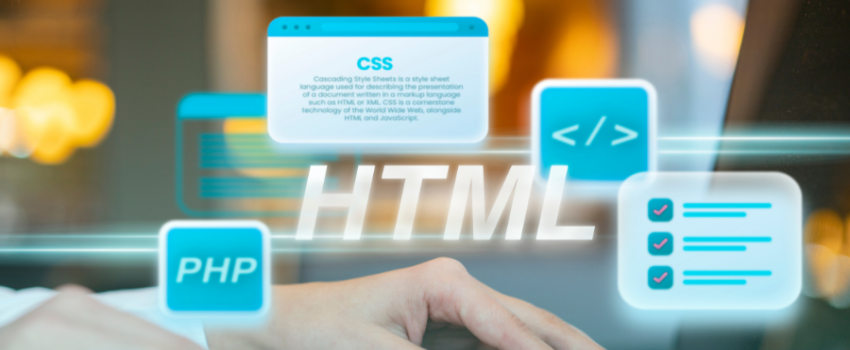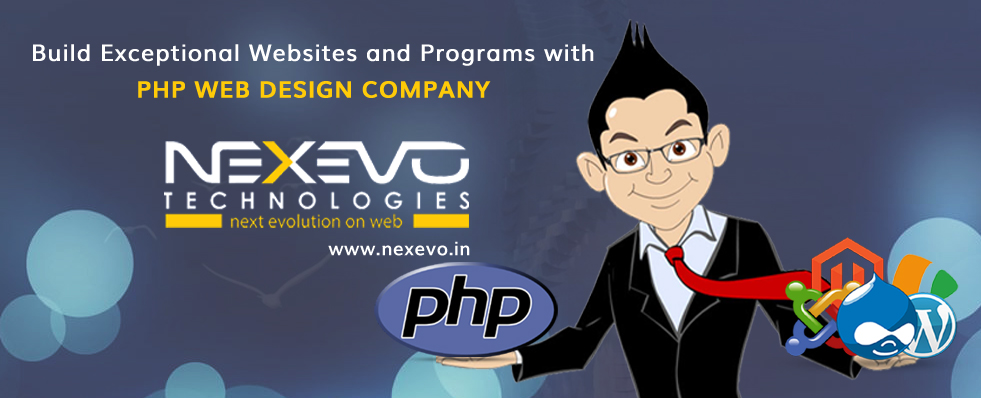PHP Development: Step-By-Step Tutorial to Get Started
PHP, which stands for Hypertext Preprocessor, is a widely used server-side scripting language primarily designed for web development. It has gained immense popularity over the years due to its versatility, ease of use, and extensive community support. In this article, we will explore the essence of PHP as a programming language and delve into the reasons behind its widespread adoption in the realm of web development.

PHP was created by Rasmus Lerdorf in 1994, originally as a set of Perl scripts to track visits to his online resume. Over time, it evolved into a full-fledged programming language that enables developers to build dynamic websites and web applications. It seamlessly integrates with HTML and can be embedded directly into the code, making it an excellent choice for creating interactive web pages.
One of the key factors that contribute to PHP's popularity is its simplicity. Compared to other programming languages, PHP is relatively easy to learn and understand, even for beginners. Its syntax is similar to C and Java, making it familiar to developers who are already well-versed in those languages. The low entry barrier allows aspiring developers to quickly grasp the fundamentals of PHP and start building web applications.
PHP's extensive documentation and vast online community further enhance its appeal. The official PHP documentation provides comprehensive information about the language's features, functions, and libraries. Additionally, PHP has an active online community where developers can seek help, share knowledge, and collaborate on projects. The availability of resources and community support makes it easier for developers to troubleshoot issues, learn new techniques, and stay updated with the latest trends in PHP development.
Another major advantage of PHP is its versatility in web development. It offers a wide range of functionalities and supports various databases, including MySQL, Oracle, and PostgreSQL. PHP frameworks such as Laravel, Symfony, and CodeIgniter provide additional tools and libraries that simplify the development process and promote code reusability. With PHP, developers can effortlessly create dynamic web pages, handle form data, manage sessions, interact with databases, and perform other server-side tasks.
Furthermore, PHP's compatibility with different operating systems, including Windows, macOS, Linux, and Unix, makes it highly flexible. It can seamlessly run on different web servers, such as Apache and Nginx, ensuring compatibility across various hosting environments. This portability enables developers to deploy PHP applications on a wide range of platforms without significant modifications.
Getting Started with PHP Development - Step-by-Step Tutorial
Are you eager to learn PHP and kickstart your journey in web development? Look no further! In this step-by-step tutorial, we will guide you through the process of getting started with PHP development. Whether you're a beginner or an experienced programmer, this tutorial will provide you with the foundational knowledge to use PHP for web development.
Step 1: Install PHP
First, you need to install PHP on your system. You can download the latest version of PHP from the official website php.net. Follow the installation instructions provided for your operating system.
Step 2: Setting Up Your Development Environment
The first step is to set up your development environment. PHP is a server-side scripting language, so you'll need a web server to run your PHP code. The most common choice is Apache, which can be easily installed along with PHP and MySQL using packages like XAMPP or WAMP for Windows, or MAMP for macOS. Once installed, you'll have a local server environment to work with.
Step 3: Learning the Basics of PHP Syntax
Now that your development environment is ready, it's time to dive into the basics of PHP syntax. PHP code is embedded within HTML, and you can start by writing simple PHP scripts within the tags. Learn about variables, data types, operators, control structures (if statements, loops), and functions. Practice writing basic PHP code to become familiar with the language's fundamentals.
Step 4: Interacting with Databases
PHP is often used in conjunction with databases to create dynamic web applications. Learn how to connect to databases, such as MySQL, and execute queries using PHP's built-in functions or database abstraction layers like PDO or MySQLi. Understand concepts like creating tables, inserting data, retrieving records, and updating or deleting data.
Step 5: Building Web Forms and Handling User Input
Web forms are crucial for user interaction on websites. Learn how to create HTML forms and process user input with PHP. Explore concepts like form validation, handling file uploads, and securely storing user data. Mastering these skills will enable you to build interactive and dynamic web pages.
Step 6: Utilizing PHP Frameworks and Libraries
To enhance your productivity and streamline development, explore PHP frameworks and libraries. Frameworks like Laravel, Symfony, or CodeIgniter provide pre-built components and follow the MVC (Model-View-Controller) pattern, making development more organized and efficient. Libraries like jQuery or Bootstrap can help with front-end development, offering ready-to-use components and functionalities.
Conclusion: PHP's prominence in the world of web development can be attributed to its versatility, ease of use, extensive documentation, and strong community support. It serves as a reliable and efficient tool for creating dynamic websites and web applications. Whether you are a seasoned developer or just starting your programming journey, PHP offers a solid foundation for building robust and interactive web experiences.











